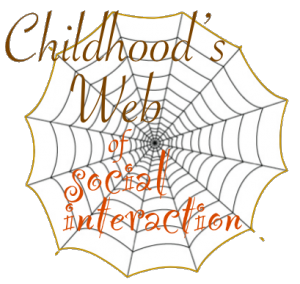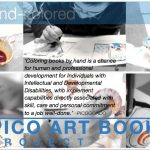 A child’s curiosity naturally wants to learn and explore. As parents, caregivers and teachers, this intrinsic gift for human development is an organic guide for our own recognition of who the child is, of where they are in their awareness of self and others, and of what is meaningful to them.
A child’s curiosity naturally wants to learn and explore. As parents, caregivers and teachers, this intrinsic gift for human development is an organic guide for our own recognition of who the child is, of where they are in their awareness of self and others, and of what is meaningful to them.
Whether the social environment is recreational, instructional or therapeutic, some simple insights into Childhood’s Web of social interaction helps us nurture shared moments with enriching qualities, and directs our steps in working together to create learning and loving opportunities for social-emotional development (and for successful parenting, teaching, caregiving, etc.).
Developing a feeling of companionship and building a sense of community, does much to shape the network of neural paths that stimulate brain development, organization and integration.
Connecting one’s sense of self with a perception of others relies on social-emotional awareness. This awareness evolves and develops through social interaction.
When relationship-building elements become present/felt in our communications/interactions with one another, self-awareness can expand and become grounded within a sense of community.
In their interactions with others and with grownups in particular, a child’s wonder begins with: ‘Can I trust this person? Can this person help me? Can I learn from this person?’
Childhood’s Web is the title of a popular presentation by Dr. Anthony M. McCrovitz, available for your group, school, or other organization. He discusses the underlying processes of the social brain, and the impact of early relationships that influence a child’s experience and their ability to engage.
Emotional attunement and the use of language are two powerful elements that influence the sculpting and evolution of the brain. As a guest speaker or presenter for a workshop, Dr. McCrovitz illustrates the relationship between what we now understand scientifically, with what we essentially recognize and can understand as the universal, human need for ‘feeling safe and loved.’
Please CONTACT US to learn more about booking this presentation.


